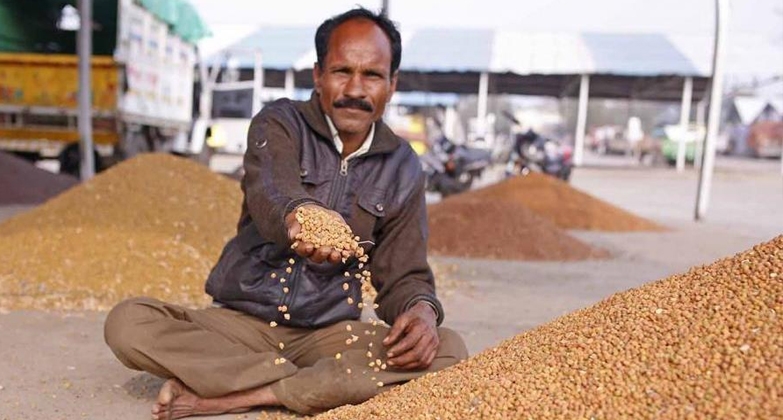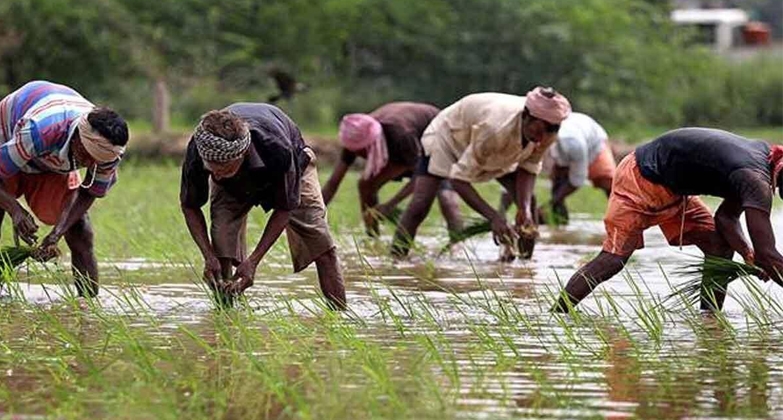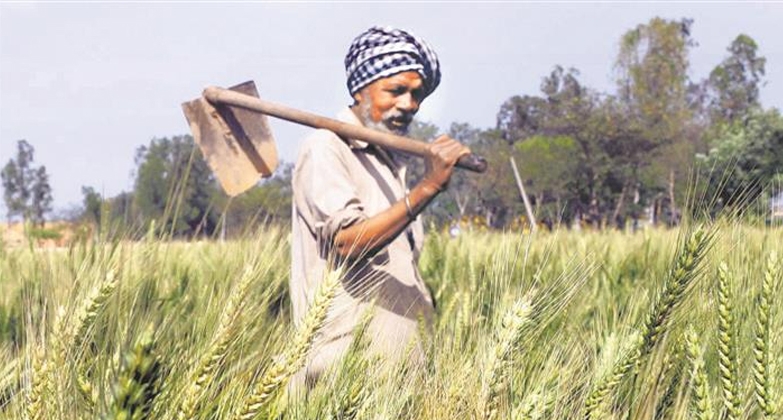FARM BILL 2020: UNCLUTTERED
| 15-Dec-2020 |

Brief Background of the issue:
Year Twenty Twenty will be remembered for not many good reasons in the books of history. It has seen the biggest pandemic which the world is still struggling to come out of and lost many great people during the journey. Today in Indian media though the topic of discussions has drastically shifted from Covid-19 to an another issue which is a topic of concern since decades but has created noise since last few days, that is the new Farm reform bill which was passed by the current central government few months back. A section of Farmers from Punjab have shown protest to this bill and negotiations with the government is underway and hopefully some solution will come soon. It gives enough reason to think why this scenario has erupted as the bill is reformative, progressive and has been in demand by various sections of Farm unions and in the political manifestos for national parties which apparently are opposing this now and what can be the future discourse with of this.
At the centre of their protests are two issues — the fear that Minimum Support Price (MSP) will not be enforced once private mandis come up and the amendment of the Agricultural Produce Marketing Committee (APMC) Act. Going back to history of the APMC & MSP it can been seen it has its roots in colonial era. The British who wanted colonies to grow cheap raw material like cotton for their factories in Britain enacted this law, and appointed various middle men and commission agents who could facilitate this and together they will cartelize or government will declare a price. And they’ll keep the price to a certain level. So we can say that it was an indirect method of price control and India adopted this in the form of MSP.

Why role of Arhatiyas (Agents or Middle men) is exploitative and need reforms:
It becomes very important to look into the key provisons of the bill. It is mostly indented to help the vast majority of the farm force which is nearly 86% and are small and marginalised farm force, who are not empowered enough to bargin for their produce to get better prices nor do they have the potential to invest in latest technological advancements for their betterment. This act gives them an extra cushion to sell their produce outside the mandis (APMC) to who so ever they want. Any buyer can buy their produce at their farm gate. The commission agents and the middle men will be side lined and they may lose but ultimately the farmer will gain. Arhatiyas, which they are referred in Punjab and Haryana, are basically commission agents. They have been in business for around six decades, since the passage of Agricultural Produce Markets Act, 1961. Over the years, arhatiyas have come to dominate the agriculture marketing and credit system, and even command substantial political and social clout. Under the 1961 Act, the government has designated a specific area named as mandi (market), where farmers sell their produce through arhatiyas registered under the act. Arhatiyas own their shops inside the mandis where the farmers bring their produce, and once they procure the produce, arhatiyas sell them through open auction. Both the arhatiyas’ commission and the mandi fee, which goes to the government, are paid by the buyers. In Punjab, the fee-plus-commission is 8.5 per cent, while in Haryana, it is 6.5 per cent. Apart from being the commission agents they have also taken up a very exploitative facilitators of easy loans to the farmers. Farmers require advance money for all their agriculture needs like purchasing seeds, fertilisers etc. And also for domestic needs like in marriages, buying vehicles and so on. The rate of interest is as high as 18 per cent, compounded twice a year, which is very exploitative and majority of the farmer community already indebted to them do not have courage to break the chain and are stuck in this vicious cycle. This system has created a over dependence on this informal system and farmer cannot challenge it as the network is backed by big politicos and this strongman hegemony has created an illusion of security among farmers which nothing but a bubble which can burst any time. Experts also say that the dependence of farmers on arhatiyas encourages malpractices as they are sometimes paid less than what the arhatiyas sold their crops for. Some arhatiyas have taken to rice shelling, leading to a clash of interest. The question arises that how can they give a good price to the farmer if they are themselves the purchasers of the produce.

What makes new Farm bill Progressive and suits the Farmers need:
These reforms also have one more important role to play of excessive grain problem. India’s buffer stock of wheat and rice was 97 million tonnes in June this year as opposed to the required 41.2 million tonnes . Food Corporation of India is buying this stuff because there is an MSP and farmers have no incentive to switch to anything else or to diversify their farming practices. If private markets come in, if contract farming happens, then some people might move to vegetables, oil, seeds, pulses. Currently, India spends $10 billion a year in procuring vegetable oils, edible oils and oilseeds. This over production of grains has lead to the stagnation of income of the famers in certain states. The farmers’ income is not going up because procurement price can only go by 4 per cent or 5 percent as government do not have enough storage places and can increase only by certain amount per year, so what happens that a large part of the produce is wasted each year. If more and more farmers in Punjab and Haryana could be persuaded to shift from wheat and rice, it will be good for India, its trade balance and the overall pricing situation. The confidence of the farmers need to built in this direction. Moreover we shall not forget India is a Farmer depressed country where everyday more than twenty lives are lost due to suicide by the people who are involved in farm related business. The present laws have become defunct and no matter how many politics can be played over it, the truth of the matter is that in a progressive society changes will come and it is also equally true no change can come smoothly when it is a policy change of this altitude. Negotiations and confidence building measures are the only choice as maximum farmers cant protest in India that too which a buffer stock of six month ration with them. If these reforms are not implemented it will be great opportunity lost and people should also realise one more thing that ‘what is market friendly does not necessarily means farmers unfriendly’.